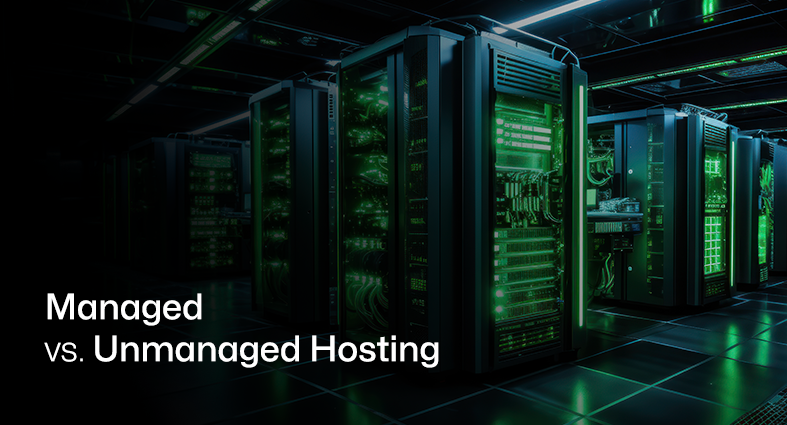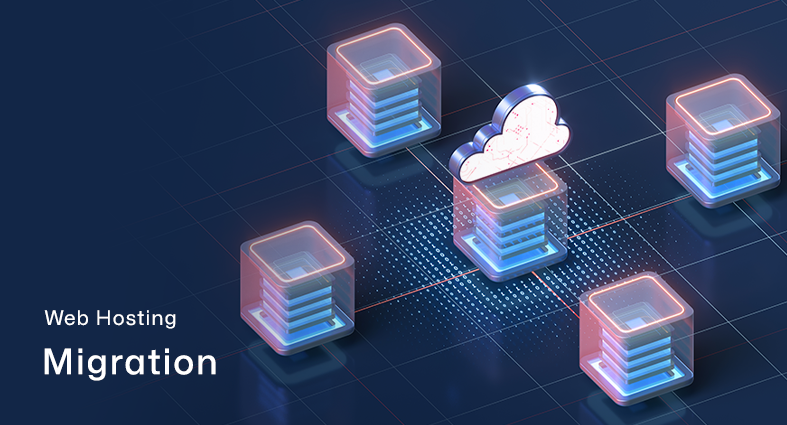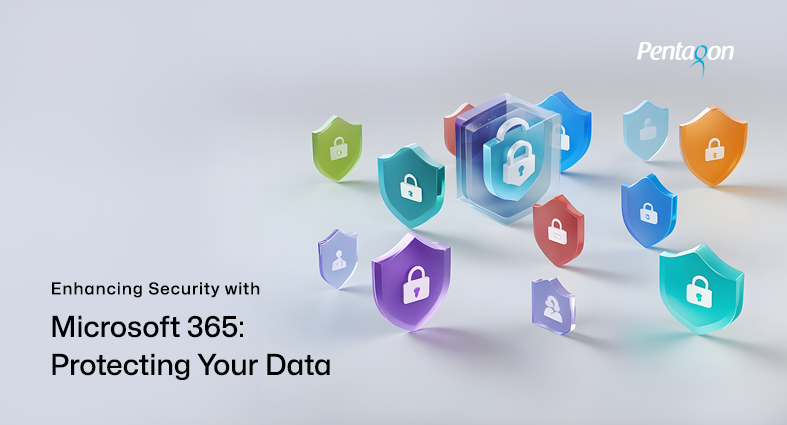The foundation of your online business lies in the choice of e-commerce hosting. E-commerce hosting plays a crucial role in optimizing an online store’s operations and providing a seamless shopping experience for customers. The significance of e-commerce hosting for online store success cannot be overstated. It serves as the foundation for your website, acting as the virtual storefront where customers browse products, make purchases, and engage with your brand. The performance of your hosting solution directly impacts crucial aspects of your online business, including website speed, uptime, security, scalability, and overall user experience. In this article, we will explore the various aspects of e-commerce hosting and how it can unleash the true potential of your online business.
Understanding the role of e-commerce hosting
One of the primary roles of e-commerce hosting is to ensure that your website is fast and responsive. Studies have shown that customers expect websites to load quickly, with a significant portion abandoning a site if it takes more than a few seconds to load. Slow-loading websites not only frustrate visitors but also lead to higher bounce rates and lower conversion rates. By providing robust server infrastructure and optimized hosting environments, e-commerce hosting enables your website to deliver the speed and responsiveness necessary to keep customers engaged and satisfied. Moreover, e-commerce hosting plays a vital role in enhancing the security of your online store. With the increasing prevalence of cyber threats, customers are becoming more cautious about sharing their personal and financial information online. Implementing robust security measures, such as SSL certificates, firewalls, and encryption protocols, helps to build trust and confidence among your customers, ultimately driving more sales and fostering long-term relationships.
Scalability is another critical aspect of e-commerce hosting. As your online business grows, you need a hosting solution that can accommodate increasing traffic volumes and handle peak loads during high-demand periods, such as seasonal sales or promotional campaigns. Scalable hosting environments, such as cloud hosting, provide the flexibility to easily expand resources and ensure your website remains stable and responsive even under heavy visitor traffic. E-commerce hosting directly impacts the overall user experience of your online store. A seamless and enjoyable shopping experience is crucial for retaining customers and encouraging repeat purchases. Factors such as easy navigation, fast-loading product pages, smooth checkout processes, and reliable inventory management are all facilitated by a well-optimized hosting solution. E-commerce hosting platforms often offer features specifically designed to streamline these processes, providing you with the necessary tools to deliver an exceptional user experience.
Online Store Hosting
Building a successful online store starts with selecting the right hosting provider. Online store hosting is the foundation that supports the operation of your e-commerce website. It involves the provision of server space, resources, and infrastructure required to make your online store accessible to customers. When it comes to online store hosting, reliability is paramount. A dependable hosting provider ensures that your website remains accessible and functions smoothly, even during peak traffic periods. It also guarantees the security of customer data and provides essential features such as SSL certificates, secure payment gateways, and regular backups.
Importance of reliable hosting for your online store
Reliable hosting is of paramount importance for the success of your online store. When customers visit your website, they expect it to load quickly, be accessible at all times, and provide a smooth shopping experience. If your website experiences frequent downtime or slow loading times, it can lead to frustrated customers and potential loss of sales. In the competitive e-commerce landscape, where customer expectations are high, a reliable hosting provider can make all the difference. A robust hosting infrastructure with high uptime guarantees minimizes the risk of downtime, ensuring that your website is always available to serve customers. Additionally, reliable hosting contributes to faster page loading times, reducing bounce rates and increasing customer engagement. When your online store loads quickly and operates seamlessly, it creates a positive impression on visitors and enhances their overall shopping experience.
Common challenges faced by online stores
Online stores face various challenges that can impact their performance and success. Here are some common challenges and how a reliable hosting provider can help address them:
- Slow Loading Times: Slow-loading websites can frustrate visitors and result in high bounce rates. A hosting provider that emphasizes speed optimization and offers features like caching mechanisms, content delivery networks (CDNs), and optimized server configurations can significantly improve page loading times and provide a better user experience.
- Downtime and Unavailability: Websites experiencing frequent downtime can lose potential sales and damage the reputation of the online store. Choosing a hosting provider with a track record of high uptime guarantees ensures that your website remains available to customers, preventing revenue loss due to inaccessible pages.
- Security Breaches: Online stores are attractive targets for hackers seeking to steal customer data or inject malicious code. A reputable hosting provider will implement robust security measures, such as firewalls, malware scanning, and regular backups, to protect your website and customer information from security breaches.
- Poor Customer Support: When technical issues arise or questions need to be addressed, having reliable customer support from your hosting provider is essential. Prompt and knowledgeable support can help resolve issues quickly, minimizing any disruptions to your online store’s operations.
E-commerce Website Hosting
E-commerce websites have unique requirements compared to traditional websites due to the nature of online transactions and the need for seamless customer experiences. The performance of your e-commerce website can significantly impact user experience and conversion rates. Slow-loading pages and frequent downtime can drive away potential customers. Opting for e-commerce website hosting that prioritizes speed, scalability, and reliability can enhance the overall user experience. With the right hosting solution, you can handle high volumes of traffic and deliver a seamless shopping experience to your customers.
Key features and requirements of e-commerce website hosting
E-commerce website hosting should offer key features and requirements to support the needs of online stores:
- Secure Transaction Processing: E-commerce hosting should prioritize secure transaction processing, protecting customer data, and ensuring the confidentiality of financial information. Secure Socket Layer (SSL) certificates and encryption protocols are essential for establishing a secure connection between the website and the customer’s browser.
- Scalability and Resource Allocation: E-commerce websites often experience fluctuating traffic volumes, especially during peak seasons and promotional periods. Hosting solutions that offer scalability and resource allocation allow online stores to handle increased traffic without compromising website performance.
- High Uptime and Reliability: Every minute of website downtime can result in lost sales and dissatisfied customers. E-commerce hosting providers should guarantee high uptime and reliability to ensure that the online store remains accessible and operational at all times.
- Database Management: Efficient database management is crucial for e-commerce websites that handle a large volume of product data, customer information, and order details. E-commerce hosting should provide robust database management tools and optimizations to ensure smooth operations and fast retrieval of information.
The impact of website performance on UX and conversion rates
Website performance directly impacts user experience and conversion rates in e-commerce. Studies have shown that even a one-second delay in page loading can result in a significant decrease in conversions. A fast and responsive website enhances user satisfaction, encourages longer browsing sessions, and increases the likelihood of completing purchases. A smooth user experience minimizes friction during the shopping process, from product discovery to checkout. Customers expect quick and seamless interactions with the website, easy navigation, and intuitive interfaces. Slow page loading times, unresponsive elements, or site errors can lead to frustration and abandonment. A slow-loading website may receive lower visibility in search engine results, impacting organic traffic and potential customers. To maximize visibility and reach a wider audience, e-commerce websites must prioritize speed and responsiveness.
Optimizing website speed, uptime, and responsiveness
To optimize website speed, uptime, and responsiveness, e-commerce websites need the right hosting solution:
- Choose a hosting provider that specializes in e-commerce hosting: Specialized hosting providers understand the unique requirements of online stores and offer tailored solutions to optimize performance and user experience.
- Implement caching mechanisms: Caching stores frequently accessed website elements, such as images and HTML files, to reduce server requests and improve loading times. Content caching can be achieved through server-side caching, browser caching, or using caching plugins.
- Utilize Content Delivery Networks (CDNs): CDNs distribute website content across multiple servers worldwide, allowing users to access data from the server closest to their location. This reduces latency and improves page loading times for users regardless of their geographical location.
- Optimize images and files: Compressing and optimizing images, CSS files, and JavaScript files reduces their size without compromising quality. Smaller file sizes lead to faster downloads and improved overall website performance.
- Regularly monitor website performance: Use website monitoring tools to track performance metrics, identify bottlenecks, and address issues promptly. Continuous monitoring allows you to proactively optimize and fine-tune your e-commerce website hosting for optimal speed, uptime, and responsiveness.
- Ensure server reliability and uptime guarantees: Look for hosting providers that offer high uptime guarantees, typically 99.9% or higher. This ensures that your online store remains accessible to customers at all times, minimizing potential revenue loss due to website downtime.
E-commerce Hosting Solutions
When it comes to e-commerce hosting, you have several solutions to choose from. One popular option is shared hosting, where multiple websites share server resources. This is a cost-effective choice for small online stores with limited traffic. Dedicated hosting, on the other hand, provides exclusive server resources solely for your website, ensuring maximum performance and customization options. For businesses looking for scalability and flexibility, cloud hosting is an ideal solution. It allows you to easily scale resources up or down based on your needs, making it suitable for rapidly growing online stores. Managed hosting services are also available, providing hassle-free management and support for your e-commerce website. Each hosting solution offers unique benefits, so it’s important to consider your specific requirements and budget when making a decision.
Shared Hosting vs. Dedicated Hosting for E-commerce Websites
Shared hosting is a popular and cost-effective option for small to medium-sized online stores. With shared hosting, multiple websites are hosted on the same server, sharing their resources such as CPU, RAM, and disk space. While shared hosting is affordable, it may have limitations in terms of performance and scalability. Since resources are shared among multiple websites, heavy traffic or resource-intensive applications can impact the speed and overall performance of your e-commerce site. On the other hand, dedicated hosting provides exclusive access to a server solely for your e-commerce website. This means you have full control over the server resources and can optimize its performance to meet the demands of your online store. Dedicated hosting offers superior speed, scalability, and security. It is an ideal choice for larger e-commerce businesses that experience high traffic volumes and require enhanced customization options.
Cloud Hosting
With cloud hosting, your e-commerce website is hosted on a network of interconnected servers instead of a single physical server. This distributed architecture ensures high availability and redundancy, minimizing the risk of downtime. Cloud hosting allows you to scale resources up or down based on your website’s needs, ensuring optimal performance during peak periods and cost savings during low-traffic periods. Additionally, cloud hosting offers seamless integration with content delivery networks (CDNs), which distribute your website’s content across multiple server locations worldwide. This improves website speed and provides a better user experience for customers accessing your online store from different geographical locations.
Managed Hosting Services
Managing an e-commerce website involves various technical aspects, including server configuration, security updates, and software installations. For businesses that prefer to focus on their core operations rather than managing hosting infrastructure, managed hosting services are a valuable option. Managed hosting providers take care of the day-to-day management of your hosting environment, including server setup, regular backups, security monitoring, and software updates. They have expertise in e-commerce hosting and ensure that your website operates smoothly and securely. This allows you to offload technical responsibilities and allocate more time and resources to growing your online business. Managed hosting services also offer additional features and benefits such as advanced security measures, 24/7 technical support, performance optimization, and website performance monitoring. They provide peace of mind, knowing that experienced professionals are handling the technical aspects of your e-commerce hosting, allowing you to focus on delivering a great shopping experience to your customers.
Hosting for Online Business
Running a successful online business requires hosting solutions that can cater to the unique needs of e-commerce. When it comes to hosting for online businesses, scalability and flexibility are key considerations. As your business grows, you need a hosting provider that can seamlessly accommodate increased website traffic and resource demands. Additionally, secure payment gateways are crucial for protecting customer data and ensuring smooth online transactions. Integrating popular e-commerce platforms with hosting solutions can streamline business operations and enhance user experience. By selecting the right hosting provider and platform, you can create a solid foundation for your online business, enabling you to focus on driving growth and delivering exceptional customer experiences.
Scalability and Flexibility
As your online business expands, it is crucial to have a hosting solution that can accommodate increasing traffic and resource demands. Scalability refers to the ability to easily scale your hosting resources as your business grows. Look for hosting providers that offer scalable solutions, such as cloud hosting or VPS (Virtual Private Server) hosting. These options allow you to adjust resources, such as CPU, RAM, and storage, to match your evolving needs. Scalable hosting ensures your website remains responsive and accessible to customers, even during peak traffic periods, enhancing their shopping experience and boosting conversion rates.
The Importance of Secure and Reliable Payment Gateways
Security is paramount when it comes to e-commerce hosting, especially concerning payment transactions. Online shoppers need to trust that their sensitive payment information is handled securely. Therefore, it is crucial to choose a hosting provider that offers robust security measures and supports secure payment gateways. Look for hosting solutions that provide SSL (Secure Sockets Layer) certificates, encryption protocols, and compliance with PCI DSS (Payment Card Industry Data Security Standard) requirements. A secure and reliable payment gateway ensures that customer transactions are protected, fostering trust and confidence in your online store.
Integrating Popular E-commerce Platforms with Hosting Solutions
Many online businesses utilize popular e-commerce platforms, such as WooCommerce, Shopify, or Magento, to power their websites. When selecting a hosting provider, it is essential to consider their compatibility with these platforms. Look for hosting solutions that offer seamless integration with your preferred e-commerce platform, as this simplifies setup and management processes. Hosting providers with specialized support for these platforms often provide optimized environments and additional features tailored to their specific requirements. Integration between your chosen e-commerce platform and hosting solution ensures a smooth and efficient operation of your online store, enabling you to leverage the platform’s capabilities and expand your business effectively.
Secure E-commerce Hosting
Ensuring the security of your e-commerce website is paramount to protecting your customers’ sensitive information and maintaining their trust. Secure e-commerce hosting provides robust measures to safeguard your online store from potential threats. One crucial aspect of secure hosting is the implementation of SSL certificates, which encrypt data transmitted between your website and customers’ browsers. This encryption prevents unauthorized access to sensitive information, such as credit card details. Regular backups and disaster recovery plans are also essential to minimize data loss in the event of a breach or system failure. With secure e-commerce hosting, you can prioritize the safety of your customers’ data and build a reputation as a trustworthy online business.
Security and protection
One of the primary concerns of e-commerce businesses is the protection of customer data. E-commerce hosting providers employ robust security measures to safeguard sensitive information such as personal details, payment information, and order history. This includes implementing encryption protocols to secure data transmission and storage, firewall protection to prevent unauthorized access, and intrusion detection systems to identify and respond to potential threats.
SSL certificates
Secure Socket Layer (SSL) certificates play a vital role in establishing a secure connection between the user’s browser and the e-commerce website. SSL certificates encrypt data during transmission, making it virtually impossible for unauthorized parties to intercept or manipulate the information. By implementing SSL certificates, online stores can instill trust in their customers, as indicated by the padlock symbol and “https” in the website URL.
Regular backups and disaster recovery plans
Data loss can be catastrophic for any e-commerce business. Hosting providers offer regular backups of website data to ensure that in the event of a system failure, accidental deletion, or security breach, data can be restored promptly. Additionally, having a disaster recovery plan in place allows for a swift recovery in case of any unforeseen incidents, minimizing downtime and potential loss of revenue.
E-commerce Hosting Features
E-commerce hosting features are crucial for the smooth operation and success of your online store. Robust server performance and reliable uptime guarantees ensure that your website is accessible to customers at all times. Scalable resources allow you to accommodate sudden spikes in traffic and handle increased demand without compromising site performance. Advanced caching mechanisms optimize page loading times, reducing bounce rates and improving user experience. Website analytics and monitoring tools provide valuable insights into site performance, allowing you to identify and address any issues promptly. These features work together to create a seamless and efficient online shopping experience for your customers, ultimately driving higher conversions and business growth.
Robust server performance and reliable uptime guarantees
One of the essential features to look for in e-commerce hosting is robust server performance and reliable uptime guarantees. When your online store experiences high traffic or during peak shopping seasons, it is crucial to have a hosting provider that can handle the increased load without compromising the website’s performance. Look for hosting providers that offer powerful servers with sufficient resources to ensure fast page loading times and a smooth user experience. Additionally, reliable uptime guarantees are crucial to ensure that your online store remains accessible to customers at all times, minimizing potential revenue loss due to downtime.
Advanced caching mechanisms for faster page loading times
Page loading speed is critical for e-commerce success. Customers expect fast and responsive websites and a delay of even a few seconds can lead to higher bounce rates and lower conversion rates. E-commerce hosting with advanced caching mechanisms can significantly improve page loading times. Caching involves storing static versions of web pages, reducing the need for database queries, and speeding up content delivery. Look for hosting providers that offer caching technologies like Varnish or server-level caching, as well as content delivery networks (CDNs) that distribute your website’s content across multiple servers worldwide, ensuring faster access for users regardless of their geographical location.
Website analytics and monitoring tools for performance optimization
To optimize your e-commerce store’s performance, it is crucial to have access to comprehensive website analytics and monitoring tools. These tools provide valuable insights into visitor behavior, conversion rates, popular products, and other key metrics that can help you make informed business decisions. Look for hosting providers that offer built-in analytics tools or easy integration with popular analytics platforms like Google Analytics. Monitoring tools, such as uptime monitors and performance trackers, allow you to identify and address any issues that may affect your website’s performance in real-time, ensuring optimal user experience and maximizing sales potential. Regular analysis of data can help you identify areas for improvement and implement effective optimization strategies to enhance your e-commerce store’s overall performance.
E-commerce Hosting Platforms
E-commerce hosting platforms play a vital role in providing a streamlined and efficient environment for running online stores. These platforms are specifically designed to cater to the unique needs of e-commerce businesses, offering a range of features and tools to simplify website management and enhance the shopping experience. One popular e-commerce hosting platform is WordPress hosting, which integrates seamlessly with the WordPress content management system (CMS) and offers a wide range of plugins and themes tailored for e-commerce. Another prominent platform is Magento hosting, known for its robustness and scalability, making it ideal for large-scale online stores. WooCommerce hosting, a plugin for WordPress, is also widely used for its user-friendly interface and extensive customization options. These e-commerce hosting platforms provide the necessary infrastructure and functionalities to build, manage, and optimize online stores effectively.
WordPress Hosting
WordPress is not only a widely used content management system but also a powerful platform for e-commerce websites. With WordPress hosting, you can leverage the flexibility and user-friendly interface of WordPress while enjoying e-commerce-specific features. WordPress hosting providers optimize their servers to deliver exceptional performance for online stores. They offer pre-installed e-commerce plugins, themes, and dedicated support for WooCommerce, the leading WordPress e-commerce plugin. WordPress hosting allows you to easily manage your online store, customize your website design, and integrate various payment gateways and extensions.
Magento Hosting
Magento is a robust and feature-rich e-commerce platform designed for larger online stores with complex needs. Magento hosting offers specialized infrastructure optimized for Magento websites. It provides the necessary resources and performance capabilities to handle high traffic volumes, extensive product catalogs, and advanced functionalities. Magento hosting providers offer scalable hosting plans that can accommodate the growth of your online store. They provide dedicated support, security features, and caching mechanisms to ensure optimal website speed and reliability. With Magento hosting, you can take advantage of advanced marketing tools, multi-store capabilities, and a vast array of extensions to enhance your online store’s functionality and customer experience.
WooCommerce Hosting
WooCommerce is a popular e-commerce plugin for WordPress that enables you to transform your WordPress website into a fully functional online store. WooCommerce hosting is specifically designed to optimize the performance and security of WooCommerce-powered websites. It provides seamless integration with WordPress, allowing you to easily set up and manage your online store. WooCommerce hosting providers offer optimized server configurations, caching mechanisms, and database optimizations to ensure fast page loading times and smooth shopping experiences. They also provide pre-installed WooCommerce, along with additional features such as secure payment gateways, inventory management, and shipping integration. With WooCommerce hosting, you can leverage the power of WordPress and WooCommerce to create a professional and scalable online store.
Conclusion
E-commerce hosting plays a pivotal role in empowering your online store and unlocking its full potential. By selecting the right hosting provider and implementing robust hosting solutions, you can optimize your website’s speed, security, scalability, and overall performance. With reliable hosting, you can ensure that your online store is accessible to customers at all times, providing a seamless shopping experience. The advanced features and tools offered by e-commerce hosting platforms enable you to manage your online business efficiently and effectively. By harnessing the power of e-commerce hosting, you can propel your online store to success and stay ahead in the competitive e-commerce landscape. Boost your online business with our reliable, high-performance hosting solutions. Get started today and unlock the full potential of your website. Take your online store to new heights with Pentagon’s secure, scalable, and feature-rich web hosting services. Take advantage of this opportunity to empower your business.
services
Feel free to send us a message.
Please, share your thoughts, and let's chat over a cup of tea.




















